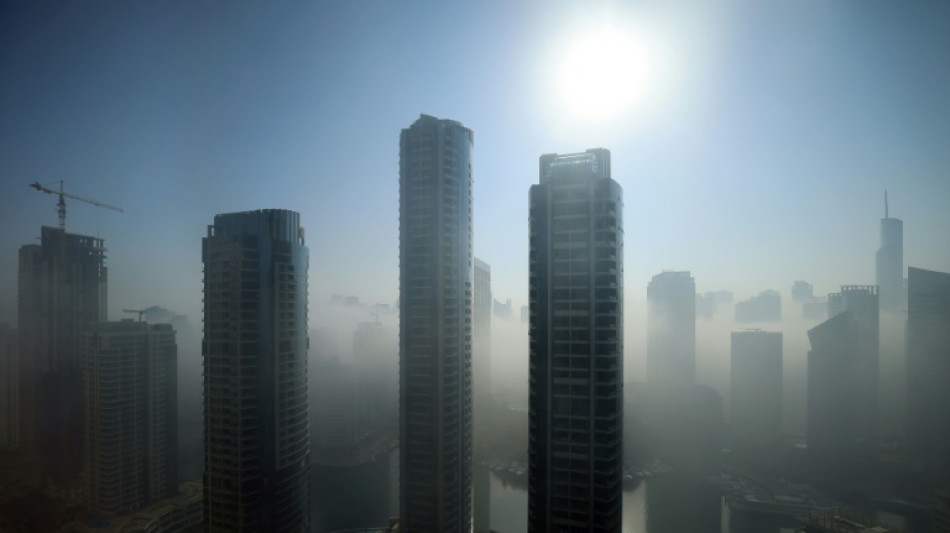COP28 host UAE choking from its own 'toxic' air pollution: HRW / Photo: Giuseppe CACACE - AFP
The United Arab Emirates is choking under "alarmingly high" air pollution levels fed by its fossil fuel industry, Human Rights Watch warned on Monday as the oil-rich country hosts the UN's COP28 climate talks in Dubai.
Air pollution is a "dirty secret" buried by a stifling of dissent in the UAE, the rights group said, adding that bad air created poses "major health risks" for its population.
Smog engulfed the city state after the climate talks began on Thursday and hit officially "unhealthy" levels over the weekend.
"Even as the United Arab Emirates government works to burnish its image as a global climate leader... the country's vast fossil fuel production and use spew toxic pollutants into the air," the report said.
The HRW report said analysis of government air pollution data and satellite imagery from 2018 to 2023 found "dangerously high air pollution levels" in the country of nearly 10 million people.
It downplayed claims that pollution is mainly caused by desert dust, citing a 2022 study published by Nature that found that around the Arabian Peninsula, more than 90 percent of fine-particulate matter -- the most hazardous -- was man-made.
Burning fossil fuels for transport, heating, incinerating waste, generating electricity and other industrial activities are among the sources of pollution, it said.
"Fossil fuels pollute the air people breathe in the UAE," said Richard Pearshouse, HRW's environment director.
"But the obliteration of civil society by the UAE's government means that no one can publicly express concerns, let alone criticise the government's failure to prevent this harm," he said.
The UAE's climate ministry did not immediately respond to a request for comment.
Air pollution has been high over the opening days of COP28, shrouding the glitzy Dubai skyline and hitting "unhealthy" levels on Saturday and Sunday, according to the WAQI.info tracking site.
Analysis of levels of PM2.5 pollution -- the fine particles that can enter the bloodstream via the lungs -- from 30 government monitoring stations in September found they were triple the WHO's air-quality guidelines on average, HRW said.
WHO estimates point to about 1,872 deaths a year from outdoor air pollution in the UAE, the report said, and the migrant workers that make up the bulk of the population are most at risk.
"(The) UAE is a factory that produces patients. The workers return with disease. There are very few people who leave here with a healthy body," HRW quoted one migrant worker as saying.
R.Altobelli--BD
